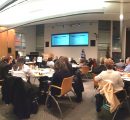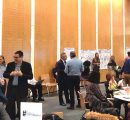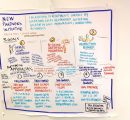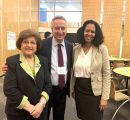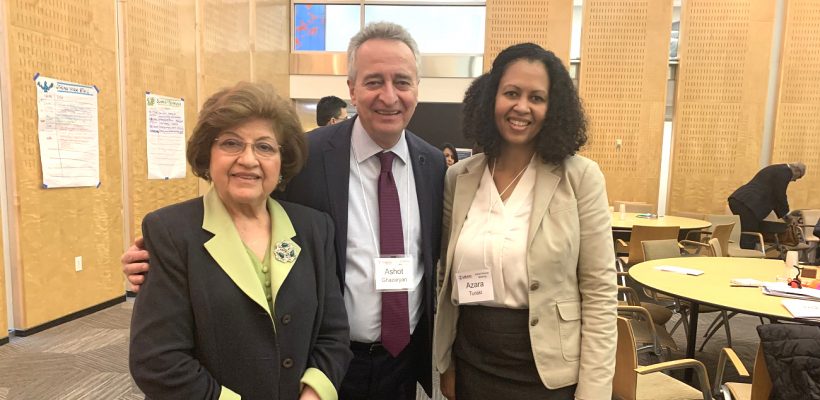
AUA Attends the USAID/ASHA Partners’ Meeting in Washington, D.C.
3 min readWASHINGTON, D.C. – On February 18-19, 2020, the American University of Armenia (AUA) attended the American Schools and Colleges Abroad (ASHA) Partners’ Meeting convened in Washington, D.C. Representing AUA were Vice President of Operations Ashot Ghazaryan, Government Affairs Liaison Dr. Arpie Balian, who is also a member of the ASHA Coalition Executive Committee, and Director of Facilities and Construction Shahan Jebejian. ASHA partners from over thirty countries had filled the conference hall to learn about USAID resources to facilitate blended financing strategies for self-reliance and the transformation of the agency.
The first address was delivered by ASHA Director Dr. Anne Dix, who set the tone for the conference placing “focus on current partners to give them a chance to have a voice,” highlighting the “paradigm shift” that the agency transformation embodies in development and public diplomacy. Later in the day, Kimberly Rosen, deputy assistant administrator in the Bureau for Economic Growth, Education and Environment, elaborated on the USAID transformation.
During the Q&A session with Rosen, Ghazaryan took the opportunity to thank USAID/ASHA for their role in the development of Armenia, in general, and AUA, in particular: “We are very grateful to USAID and American taxpayers for supporting countries like Armenia and helping to develop education and healthcare.”
The dominant content of the conference laid out various channels of collaboration of partners with the private sector in innovation and growth. The speakers included Jamie Cashman, director of Global Transactions for the U.S. International Development Finance Corporation, who spoke about loan guarantees and other development finance instruments and the expanded toolbox of financing options that focus on growth, innovation, and inclusion. Next was Nicholas Bassey, acting director of the Center for Transformational Partnerships in the USAID’s Global Development Lab, who presented market-based and private sector-led development approaches that would drive development impact and help advance countries to self-reliance.
Speaking about engaging faith-based and community organizations in development solutions was Kirsten Evans, director of the Center for Faith and Opportunity Initiatives. “As a critical part of many individuals’ support systems, these organizations help shape values and can catalyze positive behavior change,” she noted. Next was Marisa Paul, contracting officer at M/OAA, speaking on the goal of the New Partnerships Initiative, followed by key takeaways from the day’s presentations and viewing the ASHA celebration video.
On the second day, ASHA presented the results of the 2019 survey portraying highlights of the impact ASHA is making in education and health, followed by success stories from different countries. Last on the agenda was the ASHA Coalition, represented by its co-chairs Jay Ghazal and Jennifer Steele, who spoke about the ASHA budget increases in recent years and the effects of partners’ lobbying activities. The Q&A sessions that followed each presentation, group works, breaks and lunches added knowledge-sharing opportunities to communicate interests, and learn from other partners’ experiences in development.
In her closing remarks, Dr. Anne Dix thanked all the participants who had traveled from different parts of the world to attend the conference and praised the work ASHA partners accomplish in global development. She made special mention of Armenia and the effective partnership with AUA.
Following the USAID/ASHA Partners’ Meeting, AUA representatives took the opportunity to meet with several AUA alumni living and working in Washington, D.C.
Founded in 1991, the American University of Armenia (AUA) is a private, independent university located in Yerevan, Armenia, affiliated with the University of California, and accredited by the WASC Senior College and University Commission in the United States. AUA provides local and international students with Western-style education through top-quality undergraduate, graduate, and certificate programs, promotes research and innovation, encourages civic engagement and community service, and fosters democratic values.

